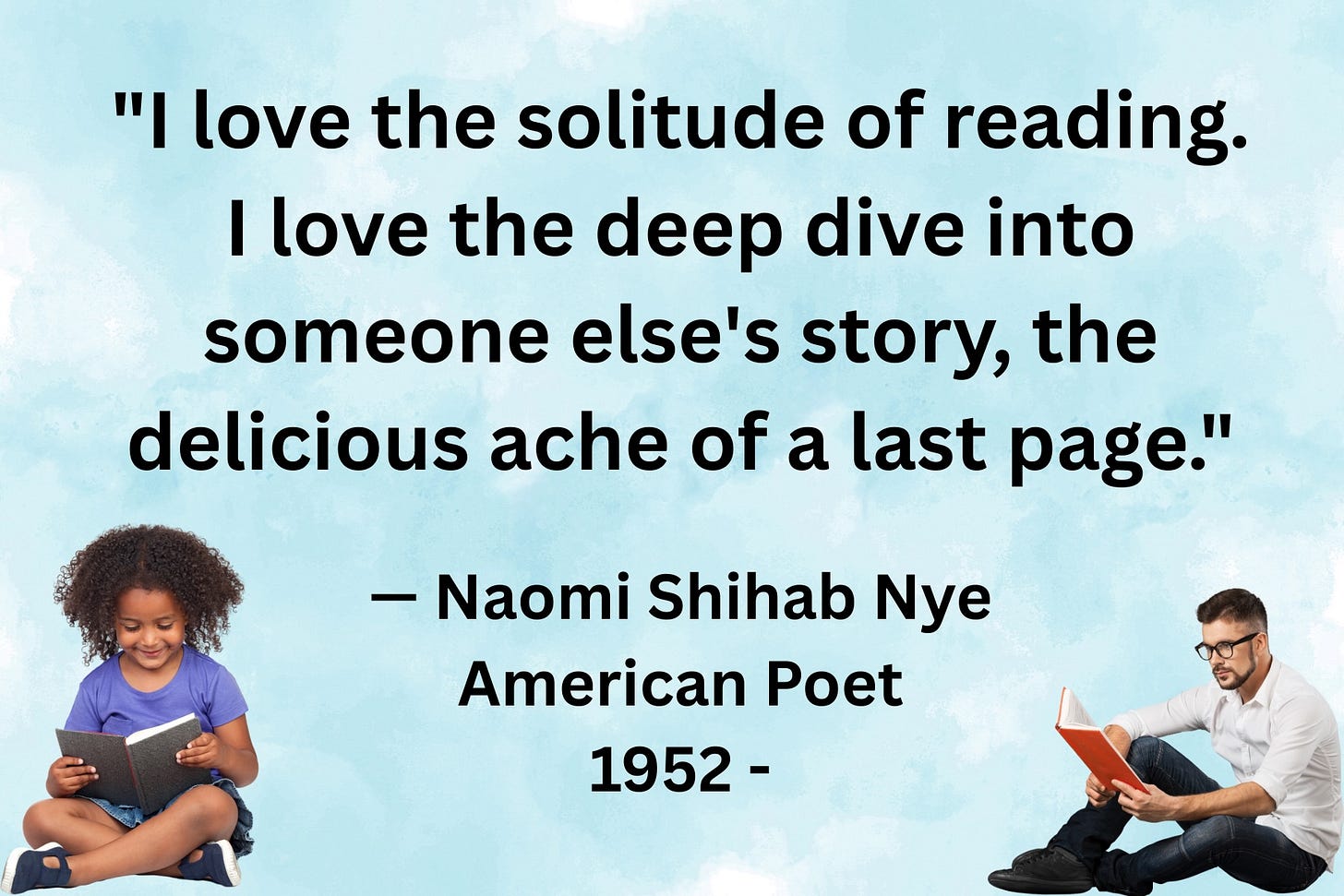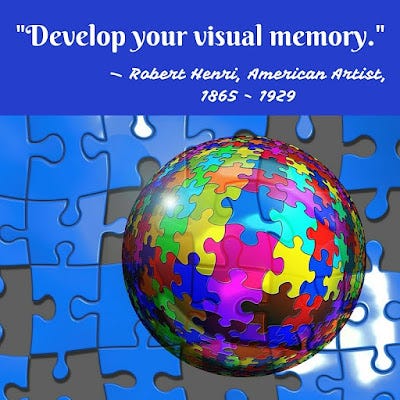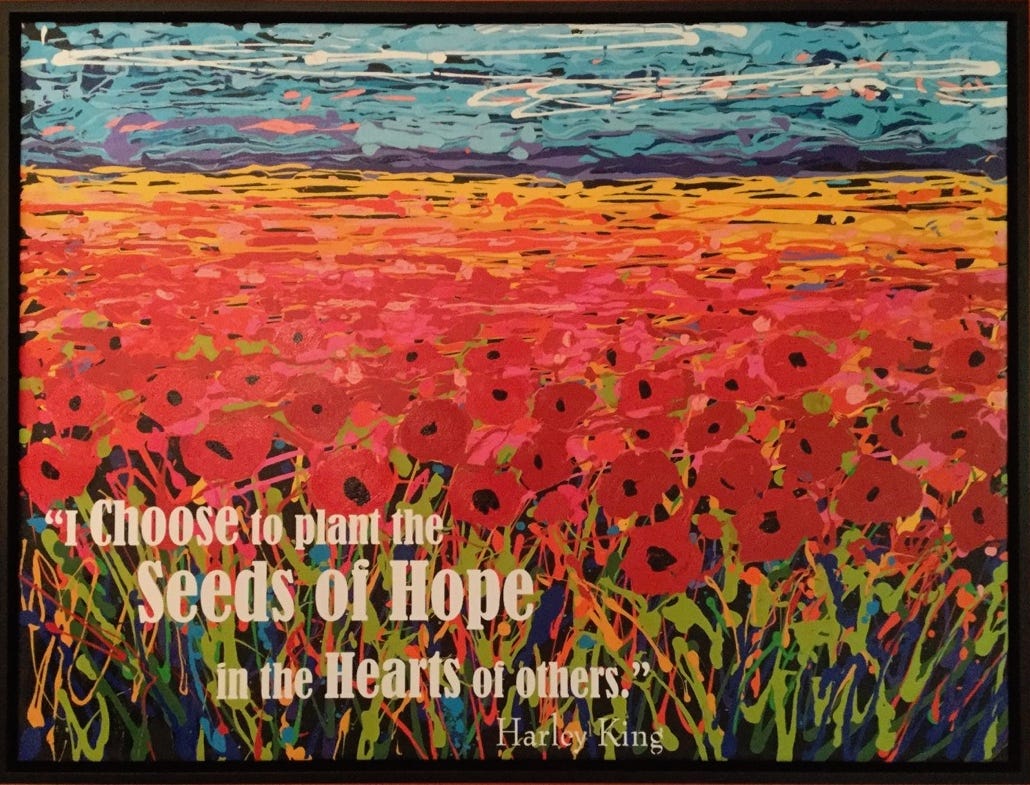Reading, Learning, and Visual Memory
Do They Help You Stay Young?
Issue #84
Thanks for reading my weekly inspirational newsletter. This issue is about life-long learning. If you find the newsletter helpful, please share it with others.
Lifelong learning is a powerful habit to develop. Learning something new keeps us in touch with our youth and helps us to stay active and alive. What have you learned in the last week? Who has taught you something new about yourself?
We experience the world through our five senses — hearing, seeing, tasting, touching, and smelling. And what we experience teaches us much if we are paying attention and alert to the possibilities. Did you smell the wind today? Did you hear the approaching storm? Do you taste the rain on your face?
From the time we are born until we die, our purpose is to learn, to grow, and to change. Most learning does not occur in school, and we don't stop learning once we graduate. Cultivate a learning attitude.
Unfortunately, many people do not learn from their mistakes. They are not willing to change and grow. To be a great creative leader, you must be constantly learning about the world in which we live.
And when we face death, it will teach us much that we have forgotten. Do not be afraid of death. Understand that it is a gift. It is a door through which we pass, a gate that leads to another world.
Reading is one of the best ways to learn. One of my great joys in life is reading novels. From the first page to the last, I enter another world and explore the lives of people whom I don't know and will never meet. From a very young age, I have enjoyed reading novels. And as Nye says, sometimes I don't want to close the book after I finish the last page. I don't want the novel to be over.
I believe we ought to applaud anyone who finishes writing a novel, whether they publish it or not. Writing a novel is a lot of work. John Cheever spent over twenty years writing his first novel. Some novelists can turn out a book or more a year. Piers Anthony, author of 48 novels in the Xanth series, works on three novels at the same time. He is outlining one book, writing a second book, and rewriting a third book.
If you are not a reader of novels, I would highly recommend it. If you read novels, what is the latest novel that you have read? Why do you like to read novels?
Philosophers have long said that we experience the world through our senses, and scientists have confirmed this. The ability to see is one of our dominant senses. The question that Robert Henri is raising here is about our memory of what we see.
Creative leaders need a strong visual memory to incorporate detail into their work. Painters often work from observing models, but they also need to be able to work from the memory of that model. The same is true of writers. Writers must be able to describe their characters, the setting, and the physical world. Often, the physical world provides the reader with insight into the nature of a character.
Visual memory is something I struggle with both as a writer and a reader. When I come to a long descriptive passage in a novel, I will skim through it quickly so as not to be bored. When I write, I struggle to put in visual detail of the person and their surroundings. As a speaker, I can be in a room for eight hours with a group of people, but at the end of the day, I could not describe their faces or the clothes they were wearing.
The only place where I have discovered that I have a strong visual memory is when I am driving. I can have driven through a city once and come back five years later, and I will remember visual elements and be able to find my way around without getting lost. Subconsciously, my brain picks up the physical clues and I remember them when I am back in the same place. If you were to ask me to describe the place, I could not.
I have been cultivating my visual memory through the study of art. If your visual memory is weak like mine, I would encourage you to find ways to improve your visual literacy. Creative leaders need a strong visual memory.
Plant seeds of hope in the hearts of others!
Thanks for reading Creative Seeds of Hope. I will stop by again next Tuesday. Have a fantastic week.







Stephen King says you can't be a good writer unless you are a good reader. I don't know of any good writers who don't read extensively and intensively. I love to read and learn. I'm not a visual artist, but I do love to take photos, and I've always enjoyed it since I got my first Brownie camera when I was a kid.
I love to read a good novel, one that captivates me and holds me prisoner, one that when I must put it down for a bit, bugs me until I pick it up again. I recently read two that I enjoyed very much: Ordinary Grace and Iron Lake, both by William Kent Krueger. A third that I read some time ago was Where the Crawdads Sing. I also saw the movie. It still tugs at my heart. I'm currently reading A Time for Mercy, a John Grisham novel. Annother recent read, The Shipping News, made me fall in love with the work of E. Annie Proulx.